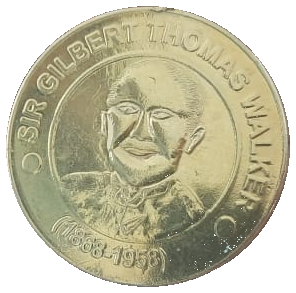
Background
The Indian Meteorological Society (IMS), in its endeavour to recognize an outstanding and pioneering contribution in the field of meteorology and related areas, has instituted the Sir Gilbert Walker Gold Medal. This award is to honour lifetime contributions towards discovery of new phenomena, understanding of the atmospheric and other processes and developing meteorological services for societal benefits.
Sir Gilbert Walker was the Director General of Observatories heading the India Meteorological Department for 20 years (1904-1924) and made significant contributions to the development of meteorology in the country. He did pioneering and monumental work on long-range forecasting of southwest monsoon in India.
Sir Gilbert Walker Gold Medal shall be awarded for the scientific contributions in the fields of monsoon meteorology including long range-forecasting of monsoon, forecasting of monsoon systems including tropical cyclones, and for overall contribution to the development of meteorology in India.
The Sir Gilbert Walker Gold Medal consists of a citation, a gold-plated silver medal and ₹1,00,000/. The medal shall be awarded biennially, i.e., once in two years.
Eligibility
Any professional, scientist or engineer with widely acclaimed contributions in the field of meteorology and allied sciences is eligible for this award. There is no age limit. The nature of contributions should be such that they have had significant impact on the growth of meteorological science and applications in the country and yielded tangible benefits.
Nominations
Nominations can be proposed by the Head of major research institute/Centre; Vice-Chancellor of University; Secretary to Government of India of Scientific
Departments; former Sir Gilbert Walker Gold Medal Awardees; Presidents of National Academies; President, Meteorological Societies of countries; an IMS Fellow or two Life Members of the Society. A candidate once nominated would be considered for three times in a row.
Call for nominations will be issued by IMS at the end of the biennial period for which the award is due. Nominations in the prescribed proforma should be submitted to the Secretary of IMS by 31 January immediately following the end of the biennial period.
Selection Procedure
All nominations received will be evaluated by the duly constituted Sir Gilbert Walker Gold Medal Committee or the Award Committee. The Award Committee will consist of President of IMS and two IMS Fellows. Secretary of IMS will support the Award Committee as a Non-Member Convener.
The Award Committee may also consider suitable persons for the award, who in their opinion have made outstanding contribution to meteorology and allied sciences, in addition to those persons whose valid nominations have been received. The decision of the Award Committee shall be final.
Presentation of the Award
The Sir Gilbert Walker Gold Medal Award will be presented at the next Annual Convention or a major event of the IMS. The awardee will be informed at least one month in advance before the scheduled presentation of the Award.
Sir Gilbert Walker Gold Medal Awardees
| Biennium | Year Awarded | Awardee | Bio-sketch |
|---|---|---|---|
1999-2000 |
2001 |
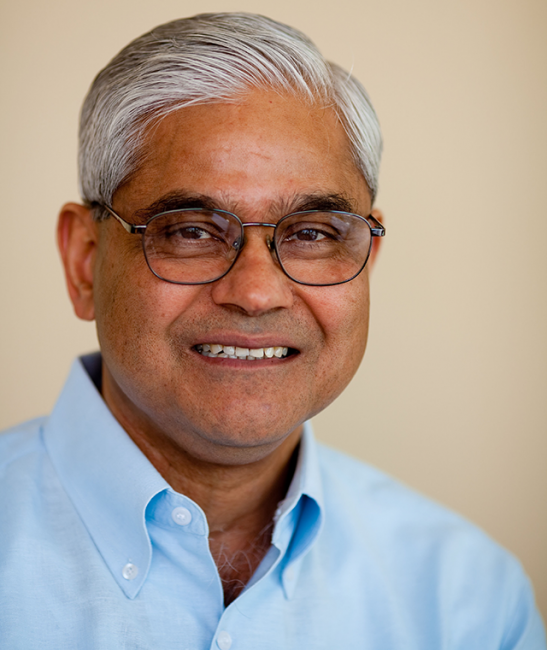 Prof. J. Shukla |
Prof. J Shukla is a Distinguished Professor at George Mason University, USA, where he founded the Department of Atmospheric, Oceanic, and Earth Sciences and Climate Dynamics PhD Program. Prof. Shukla’s scientific contributions include studies of: the dynamics of monsoon depressions; the climate variability; the influences of SST on seasonal variability; the intraseasonal and inter-annual variability of monsoons; the predictability and prediction of monsoons, tropical droughts, and ENSO. Prof. Shukla received the most prestigious award of the World Meteorological Organization (WMO), the International Meteorological Organization (IMO) Prize, in 2007.
|
2001-02 |
2004 |
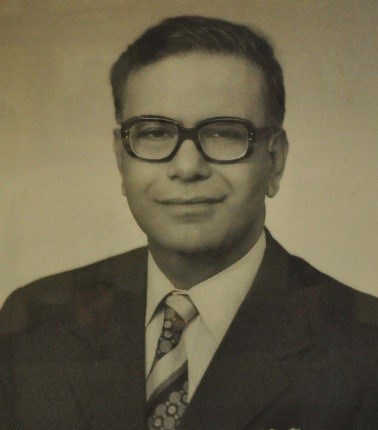 Prof. P.K. Das |
Late Prof. P.K. Das served as the Director General of Meteorology, India Meteorological Department (IMD) during 1979-1983. He had joined the IMD in 1949. Prof. Das made pioneering research and contributions to Meteorology, in particular to the development of Numerical Weather Prediction in India. He worked on cloud physics with Sir John Mason at Imperial College, London. He also worked with Prof. Jule Charney, Prof. Norman Philips and Prof. Ed Lorenz of the MIT and Reid Bryson at the University of Wisconsin.
|
2007-08 |
2009 |
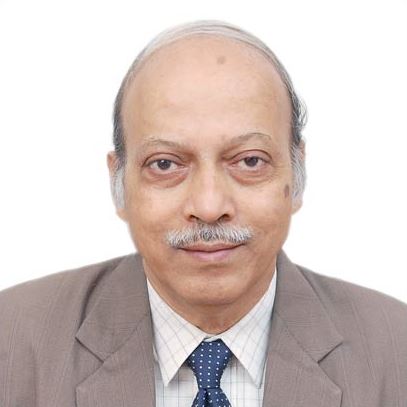 Prof. U.C. Mohanty |
Prof. U. C. Mohanty worked at the Indian Institute of Technology (IIT) Delhi before shifting to IIT Bhubaneswar as Visiting Professor, in the School of Earth Ocean and Climate Sciences (SEOCS). He has made outstanding contributions in the field of tropical meteorology, in particular, Asian summer monsoon dynamics, tropical cyclone research, numerical weather prediction in tropics, mesoscale modeling of extreme weather events over Indian monsoonal regime, extended range prediction of Indian summer monsoon and regional climate modeling.
|
2009-10 |
2012 |
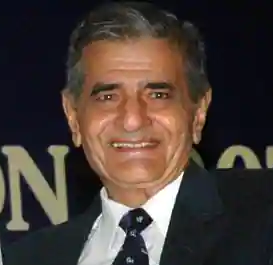 Shri D.R. Sikka |
Late Shri D. R. Sikka served as the Director of the Indian Institute of Tropical Meteorology (IITM) during 1986-1992. He was an internationally renowned expert on the monsoon in particular and in Tropical Meteorology in general. His knowledge and experience of spanning six decades are considered brilliant. He never retired from the limits of his scientific capability, and remained active even at the age of more than eighty. He was spearheading many important projects/missions of Ministry of Earth Sciences, Department of Science & Technology related to Atmospheric Sciences.
|
2011-12 |
2012 |
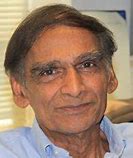 Prof. T.N. Krishnamurti |
Late Prof. T. N. Krishnamurti was Professor Emeritus in the Department of Meteorology, Florida State
University. Prior to his retirement, he was the Lawton Distinguished Professor of Meteorology. He specialized in studies of monsoon, hurricanes and numerical weather prediction and more recently on multi-model super-ensemble forecasts for global weather (including hurricanes) and climate. Prof. Krishnamurti had received several awards of excellence including the most prestigious award in meteorology – the IMO Prize in 1996 from WMO and the Carl Gustav-Rossby Research Medal of the American Meteorological Society. He was a distinguished alumnus of Andhra University where he obtained his Master’s degree in Meteorology. He published over 250 papers and two textbooks.
|
2015-16 |
2017 |
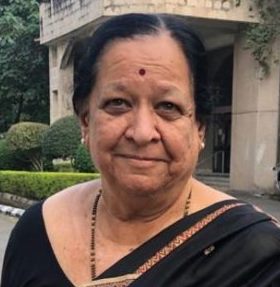 Prof. S. Gadgil |
Prof. Sulochana Gadgil has served as a Senior Professor at the Centre for Atmospheric and Oceanic Sciences (CAOS), Indian Institute of Science, Bangalore, for most of her professional career. She has studied the how and why of monsoon, including farming strategies to cope with rainfall variability and modeling ecological and evolutionary phenomena. Her research led to the discovery of a basic feature of the sub-seasonal variation in the monsoon cloud bands. She has demonstrated that the monsoon is a manifestation of the seasonal migration of a planetary-scale system.
|
2017-18 |
2019 |
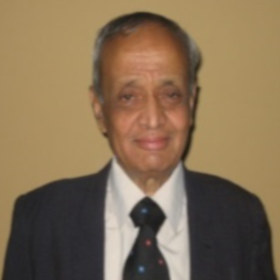 Prof. R.N. Keshavamurthy |
Prof. R.N. Keshavamurthy has served as the Director of IITM during 1992-96. Earlier, he has had a long and distinguished career as an Associate Professor and Professor at the Physical Research Laboratory, Ahmedabad, during 1978-92. He has also served as a member of the Joint Scientific Committee of the World Climate Research Programme during 1987-90. His early career included working in IMD and IITM in the late 1950s and 1960s.
|
2019-20 |
2022 |
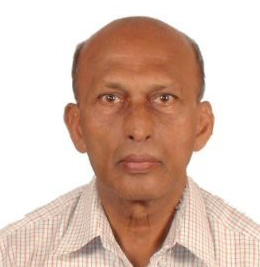 Prof. P.V. Joseph |
Prof. P.V. Joseph has joined IMD in 1957, where he carried out the responsibilities of operational weather forecasting for nearly two decades at several centres in India, in the fields of aviation meteorology, cyclone warning, etc. Later he was Director of the Meteorological Training School of IMD (designated as WMO Regional Training Centre) at Pune. In 1983 he obtained PhD degree in Physics from the University of Pune for his work on monsoon variability. After taking voluntary retirement from IMD in 1989, Prof. Joseph took up various assignments in India and USA. He was awarded the IMS Life Time Achievement Award in 2016.
|
2021-22 |
2023 |
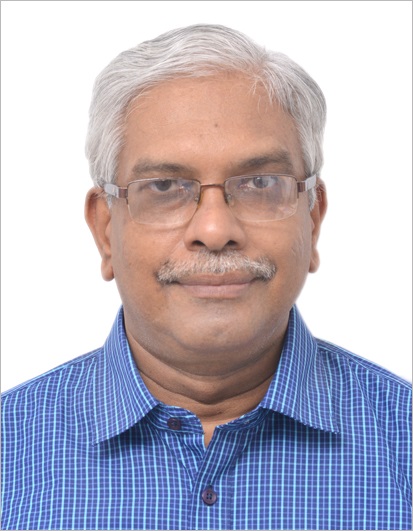 Dr Madhavan Nair Rajeevan |
Dr Madhavan Nair Rajeevan has joined IMD in 1986, where he served for 23 years before moving to Department of Space as a senior scientist. He briefly served as Director of IITM in 2015, and then as Secretary to the Government of India in the Ministry of Earth Sciences (MoES) during 2015-21, followed by his appointment as MoES Distinguished Scientist during 2022-23. He is currently the Vice Chancellor of Atria University, Bengaluru. He holds a PhD from the University of Pune. Dr Rajeevan made significant research contributions in the areas of monsoon variability and monsoon forecasting, extreme weather events, mesoscale convective systems and satellite data applications. He developed many forecasting tools and data products that IMD still utilises for operational use. He is currently a member of the Research Board of the World Meteorological Organisation (WMO).
|